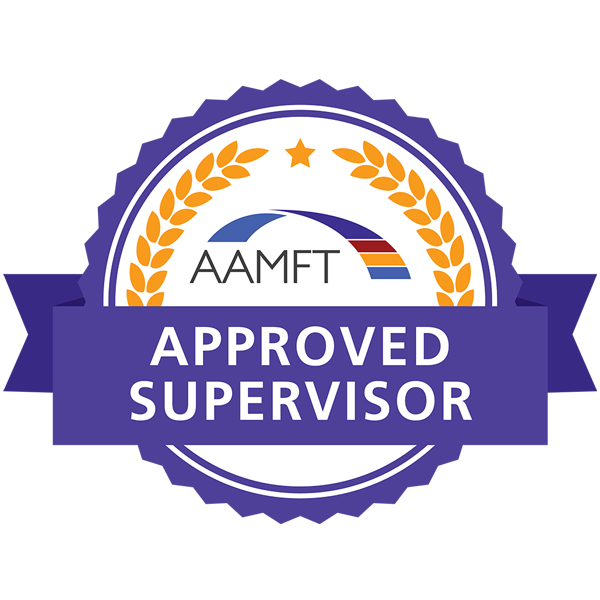
Get to Know Sean
I’m a Licensed Marriage and Family Therapist and AASECT-Certified Sex Therapist based in Seattle. I work with individuals, couples, and relational systems navigating challenges related to intimacy, communication, identity, anxiety, and life transitions.
My approach is warm, collaborative, and grounded in both clinical expertise and lived, relational experience. I believe in the healing potential of curiosity, presence, and connection.
Why Seattle & Washington Turns to Me
Many clients find their way to me when they’re looking for more than just coping tools. They want someone who can hold complexity—someone who’s trained to navigate the inner world and the relational field with nuance, warmth, and depth. Whether you’re exploring your identity, seeking greater emotional connection, working through past trauma, navigating anxiety, or unpacking patterns in partnership, you’re not alone.
My practice supports a wide range of people across Washington—those in committed relationships or on their own, parents, professionals, creatives, students, and people at personal or relational crossroads. I work with care, clarity, and evidence-based insight to help clients reconnect with themselves and with what matters most.
Credentials & Evidence-Based Approach
I hold advanced certification in sex therapy through AASECT and am a Washington State-approved supervisor for LMFTs and therapists in sex therapy training. My foundation is in evidence-based practice—not just because it’s effective, but because it respects your time, your story, and your goals.
Earlier in my career, I worked closely with the Gottmans at the Relationship Research Institute. That experience shaped not just my technical knowledge of couples dynamics and interventions—it rooted me in the importance of asking real questions, letting data inform care, and respecting the complexity of relationship systems. I continue to carry a research orientation in my work today: curious, systemic, and always open to what the evidence—and each unique person—reveals.
My ongoing training draws from Gottman Method, narrative therapy, systems theory, attachment science, and relational-cultural frameworks. I also consult regularly with a trusted network of clinicians and supervisors to ensure that my work stays ethical, grounded, and alive.
Areas of Focus
- Sex therapy for individuals and couples
- Healing from shame, anxiety, and religious sexual trauma
- Support for identity exploration and embodiment
- Working with LGBTQ+, polyamorous, and kink-affirming clients
- Communication issues and emotional disconnection
- Anxiety, overwhelm, and life transitions
- Relationship repair after conflict or betrayal
- Boundary setting, differentiation, and self-worth
- Premarital and commitment counseling
- Grief, loss, and adjustment struggles
Whether you're navigating challenges in your relationships, exploring your identity, or simply wanting to feel more at ease within yourself—this work is built to support your process. I bring not only clinical training, but a personal and grounded perspective shaped by years of experience and care.
Personal Background & Values
I was born and raised in British Columbia, surrounded by tall trees, expansive skies, and a culture of quiet resilience. On my mother’s side, I carry Ukrainian roots—rich with a heritage of endurance, family connection, and reverence for story. My father’s side brings a lineage of military service and discipline, values that taught me early on about honor, structure, and responsibility.
That mix—of culture, care, and service—shapes how I show up as a therapist. I bring groundedness and directness, but also softness. I value spaciousness, curiosity, and a deep trust in your innate wisdom. Therapy with me isn’t about fixing—it’s about unfolding, about reconnecting with what’s already within you but perhaps out of reach.
Outside the Room
When I’m not in session, I find joy in nature—hiking the lush trails around Seattle, swimming, or being near trees and open sky. These practices keep me rooted and remind me how essential pleasure and rest are to the work we do in therapy. I also love music, quiet coffee rituals, and time spent in chosen community.
Ready to Begin?
If something here resonates—if you're feeling a quiet nudge toward clarity, connection, or a more grounded version of yourself—I invite you to take the next step. You don’t need to have it all figured out to start. Therapy offers a place to explore what’s been hard to name, to shift patterns with intention, and to grow a deeper capacity for joy, intimacy, and self-trust.
Whether you're carrying questions about intimacy, seeking healing from shame, working through anxiety, or simply wanting to feel more at home in your life—you're not alone. I offer a steady, attuned presence to support your path forward with honesty, skill, and compassion.
“Your vision will become clear only when you can look into your own heart. Who looks outside, dreams; who looks inside, awakes.”
— Carl Jung
Frequently Asked Questions
What types of issues do people bring?
Clients bring a wide range of concerns, including desire discrepancies, intimacy blocks, anxiety, communication struggles, identity development, and emotional disconnection. Therapy offers space to reconnect with yourself and others, and to navigate complex relational or personal territory with support.
I’m struggling with anxiety or overthinking—can therapy help?
Yes. Therapy provides tools and insights for understanding anxiety, calming the nervous system, and shifting unhelpful thought patterns. Whether you're feeling overwhelmed, stuck in loops, or navigating life transitions, we can work to reduce anxiety and increase emotional resilience.
Do you work with couples?
Yes, I work with couples and individuals. Couples often seek therapy to improve communication, rebuild trust, deepen emotional intimacy, or navigate life stages together. You don't need to be in crisis—many couples come in simply to grow more connected and aligned.
What is AASECT?
AASECT stands for the American Association of Sexuality Educators, Counselors, and Therapists. Certification means I’ve completed extensive training, supervision, and adhere to high ethical standards. It signals specialized expertise in sexuality, identity, and relationship concerns.
We keep having the same argument. Can therapy help with that?
Yes. Repeating conflict patterns are often rooted in unmet needs or deeper emotional cycles. Therapy helps uncover the underlying dynamics, improve emotional safety, and support new, more effective ways of relating. It’s not just about communication tips—it’s about rebuilding understanding and trust.
What does sex-positive mean in your work?
Being sex-positive means all consensual expressions of sexuality are welcome and respected. Whether you're exploring kink, celibacy, non-monogamy, or anything in between, therapy offers space to define your values and desires—free from shame or judgment.
Do you offer virtual sessions?
Yes. I provide secure, HIPAA-compliant teletherapy to clients across Washington State. Online sessions are flexible and accessible—many people find them just as effective and connected as in-person work, especially when we set clear boundaries and create a grounded, focused space together.
Can therapy help with setting boundaries or building self-worth?
Absolutely. Whether in relationships, work, or family dynamics, therapy can help you clarify your needs, assert your values, and develop more empowered boundaries. It's also a place to rebuild self-trust and shift patterns shaped by past experiences.
Is it okay if I’ve never talked about sex in therapy before?
Of course. Many people haven’t had affirming spaces to explore sexuality. We move at your pace and create space for curiosity, compassion, and clarity—free of pressure or judgment.
Do you integrate cultural, racial, and social identity into your work?
Yes. I practice through an intersectional lens, honoring how race, culture, gender, orientation, and social context shape your story and emotional landscape. These layers aren’t separate from therapy—they’re essential to understanding and healing.





